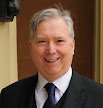This letter from Peter Greenhill was published today in the Whitehaven News.
Sir – May I congratulate you on the organisation of the successful march protesting against the possible erosion of hospital services in West Cumbria.
It is sad that the local MP is still in the “puppy walking” stage of his career and that he had to deliver an approved Labour Party diatribe when clearly the march was specifically local and non-political. But that was the only scuff mark on an otherwise clean sheet.
As a Londoner now living in Cumbria, I can well understand the failure of most Westminster-based politicians and Department of Health officials to grasp the dynamics of rural health care. Until moving here, I had not an inkling of the genuine problems faced in the delivery of any form of health cover, let alone one which serves such a widespread community.
Let me give you an example: where I used to live I had access to the following hospitals: Hillingdon, Mount Vernon, Ealing, Northwick Park, West Middlesex, Ashford, High Wycombe and Wexham Park. Not one of these was located more than 20 miles from my home. These hospitals were based on the population served, which – from memory – was 180,000. I should also make the point that hospitals in London itself were relatively easy to reach.
As a director of one of these hospitals, I well recall the thunderous row when a child with a serious medical problem was driven by ambulance the 12 miles to one or other of these hospitals where it was known that a) they had the clinical team capable of dealing with the child’s specific condition, b) they had the necessary scanning equipment; and c) they had a vacant intensive care bed.
Our clinical staff were accused of behaviour bordering on negligence to subject the child to such an ordeal as being driven 12 miles.
Here in Cumbria nothing is thought of a patient having to travel to Hensingham or Carlisle which from my home are 17 miles and 28 miles respectively. Journeys for other people are even greater, especially if you have no access to a car.
Anyone who has experience of dealing with potential (or real) heart attacks will have the words “The Golden Hour” etched on their brains. For many people in Cumbria a journey to hospital may well take more than that and if the ambulance also has to find the patient’s location in the first place, the Golden Hour is placed in immediate jeopardy.
Clinicians and nursing staff in any hospital work tirelessly to save lives but realise that even with additional time, not every patient can be saved. This leads to the obvious conclusion that the more time you take to get the patient to the care unit, the greater the risk of losing them. Of course, paramedic care is a wonderful additional and powerful tool, as indeed are the helicopters, but there are limits to their use.
Time and again the problems of my hospital came down to bed availability, and although we had the ground space we were not allowed to build a “recovery unit” where patients, as yet unfit to go home, could be certain of continuing care albeit at a less intense level but where urgent medical attention was within a bleep call. A facility like that could solve dozens of related problems which afflict every general hospital in the country but shutting down many existing services does not save lives.
Closing hospital units is lunatic and inhumane.
Peter GREENHILL

